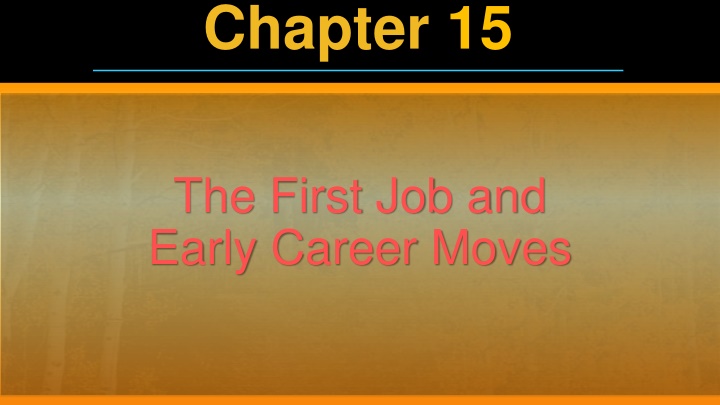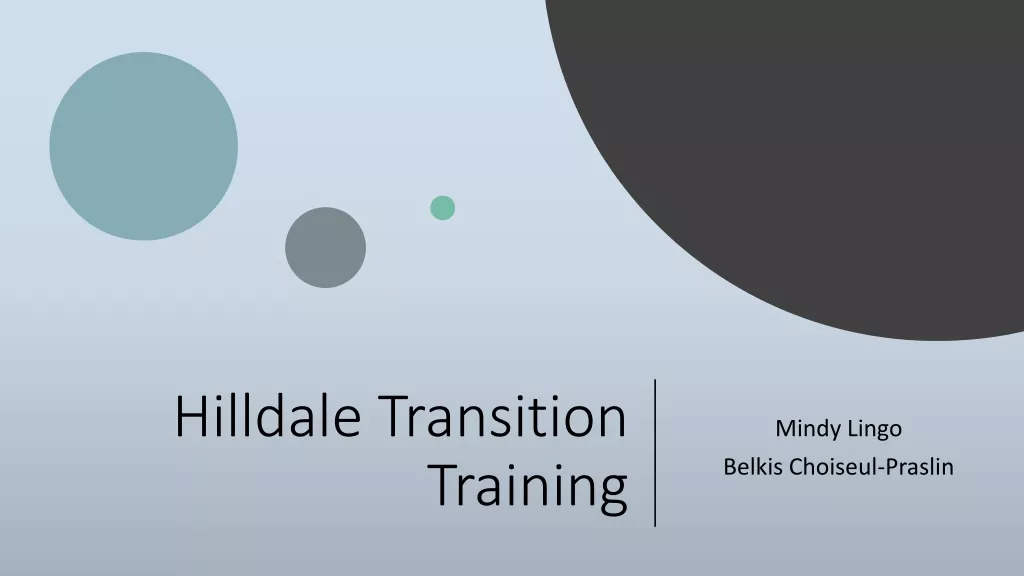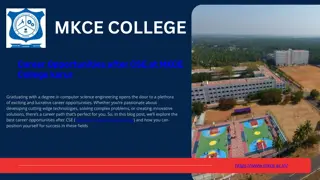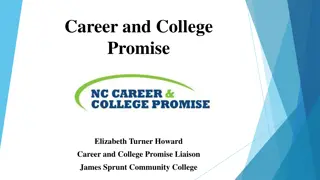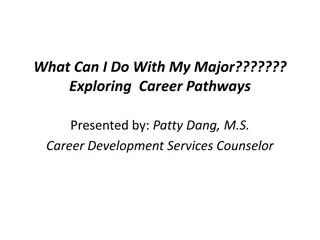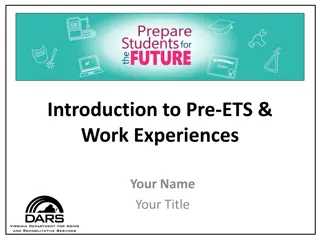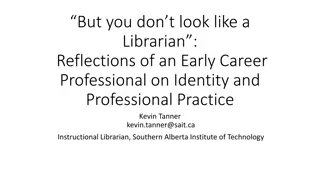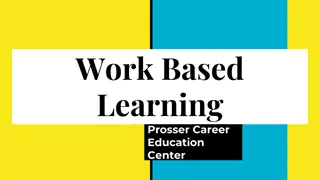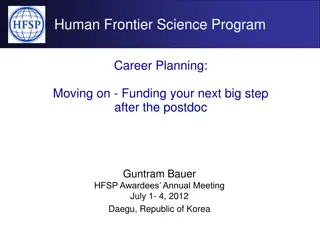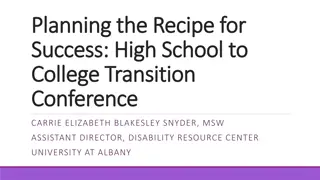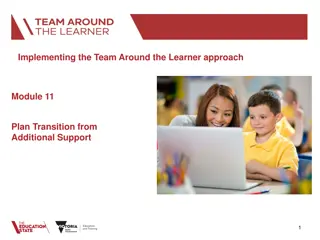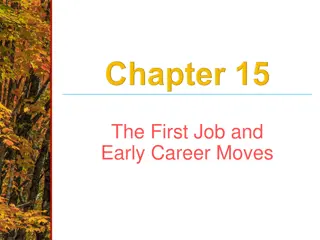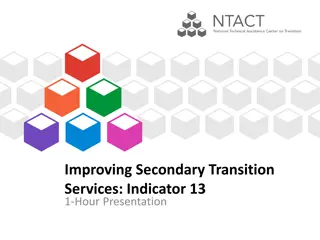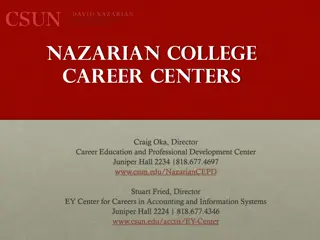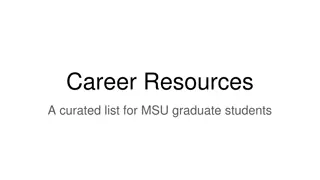Early Career Success: Navigating the Transition from College to Professional Work
Master the art of transitioning from college to the professional world with essential insights on securing your first job, developing key skills, adjusting to professional work culture, and excelling in your early career. Discover strategies to thrive in your new role, build strong relationships at work, manage expectations, and receive feedback effectively.
Download Presentation

Please find below an Image/Link to download the presentation.
The content on the website is provided AS IS for your information and personal use only. It may not be sold, licensed, or shared on other websites without obtaining consent from the author.If you encounter any issues during the download, it is possible that the publisher has removed the file from their server.
You are allowed to download the files provided on this website for personal or commercial use, subject to the condition that they are used lawfully. All files are the property of their respective owners.
The content on the website is provided AS IS for your information and personal use only. It may not be sold, licensed, or shared on other websites without obtaining consent from the author.
E N D
Presentation Transcript
Chapter 15 The First Job and Early Career Moves
Presentation Overview Getting a good start in the new job College and work compared Adjusting to professional work Career strategy for the first year Moving up or out Career planning to career management CIP perspective
Getting a Good Start at the New Job Employer research--what students should do to secure a position & skills needed for success Focus on 3 areas: 1) Basic skills--writing, communication, preparing reports, summarizing ideas 2) Professionalism & maturity--realistic salary expectations, acting professionally, time management, accepting feedback 3) Interpersonal skills--conduct a conversation, establish rapport, engaging in teamwork
College and Work Compared What areas might be What areas might be a challenge for a challenge for you in your first you in your first professional job? professional job? What are some differences? See text Table 15.1 Differences in Boss vs. Professor? How does learning process vary in job vs. college settings?
Adjusting to Professional Work Orientation Brief welcome vs. months of sessions Review of history, mission, culture, policy & & procedures Assimilation Period Rotations, feedback, structured mentorship, socialization, use of technology
Adjusting as a New Professional Areas of Adjustment: Job culture Personal life after college 1st year financial management
Job Culture Clock and calendar management Impression management Managing your boss Coworker relationships Special coworker relationships Your evaluations
Minimize Surprises in Your Evaluations Pay attention to subtle cues about quality of your work Read your job description carefully Ask supervisor and trusted coworkers for feedback Read organization s personnel policies and department specific manuals Realize that evaluations are made in context of social relationships
Personal Life After College Finding social relationships in a new community Having work-life balance What are some What are some resources that resources that can be helpful can be helpful in making this in making this adjustment? adjustment? Attending to lifestyle, health, stress, and other issues
First-Year Financial Management Living arrangements costs of moving to a new place, acquiring what you need to live comfortably Wardrobe development purchasing clothes appropriate to new workplace Transportation being cautious about expenses in this area Food how will a new professional job affect your eating habits? Loans, credit, and savings managing student and credit card debt
Career Strategy for the First Year In-service training its importance to employers and employees Communication skills Be your own PR machine what are some ways to do this?
Moving Up or Out Getting promoted what are factors that contribute to this? Getting fired what workplace behaviors might result in persons losing their job? Quitting: Making the decision to leave how to handle this with boss or supervisor Suggestions to make the process go more smoothly
From Career Planning to Career Management How are these two things different? Taking advantage of organizational career development programs Role of mentors Quarter-life stage what does this mean?
CIP Perspective for Your New Job Self-Knowledge Provides criteria for evaluating job satisfaction, whether your values are being met, opportunities to advance job skills Option Knowledge Expand knowledge about specific occupations & positions, organizational culture Decision-Making Using the CASVE cycle to solve job-related problems and make strategic career decisions Executive Processing Importance of thinking strategically and not allowing negative thinking to impact your views of opportunities; being an active designer of your career within the positions you occupy
